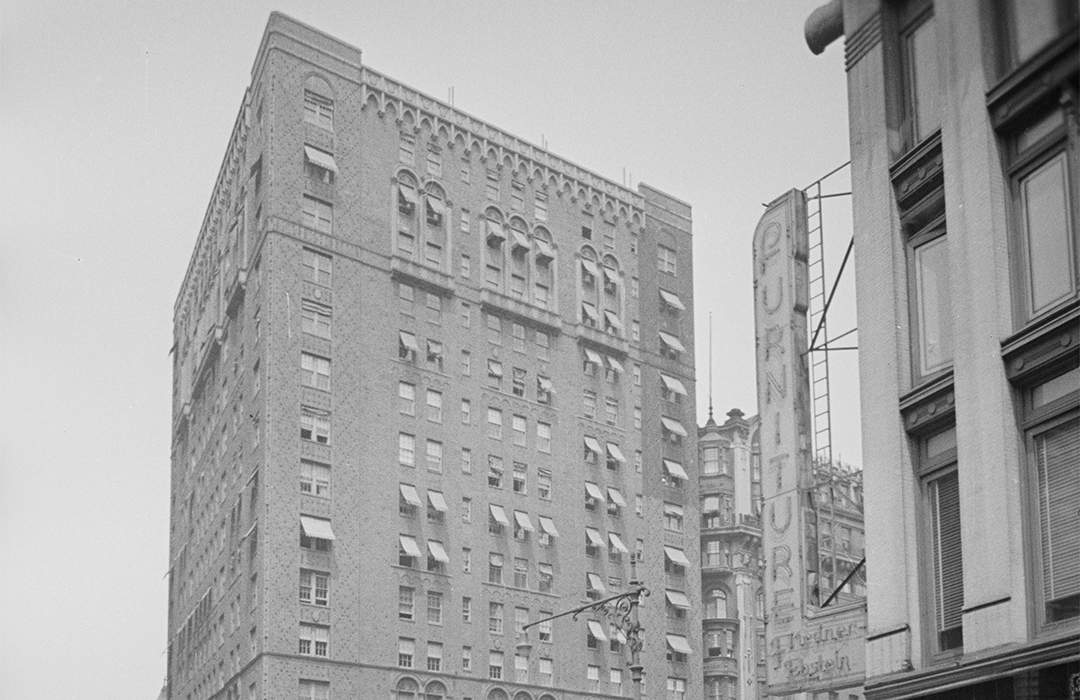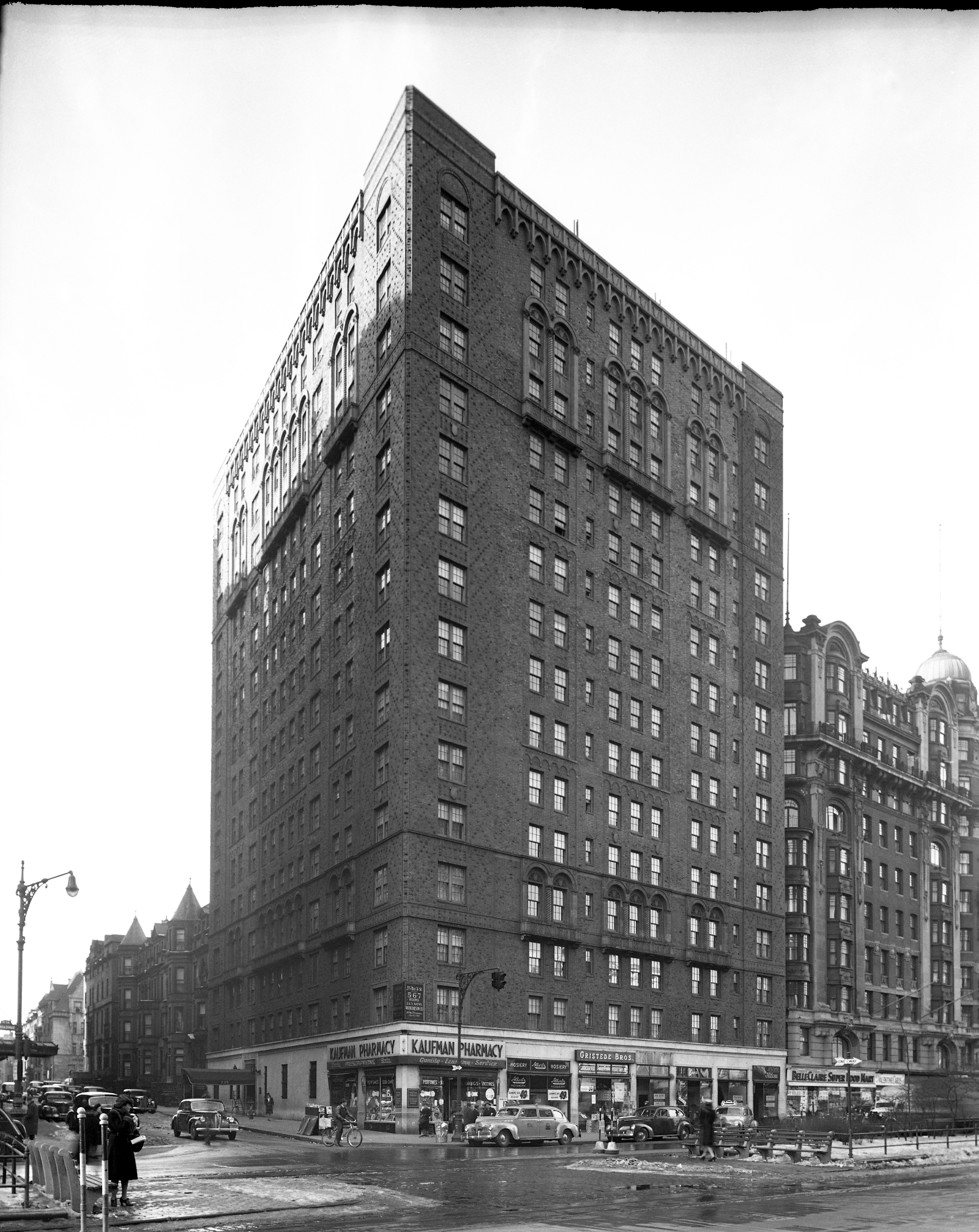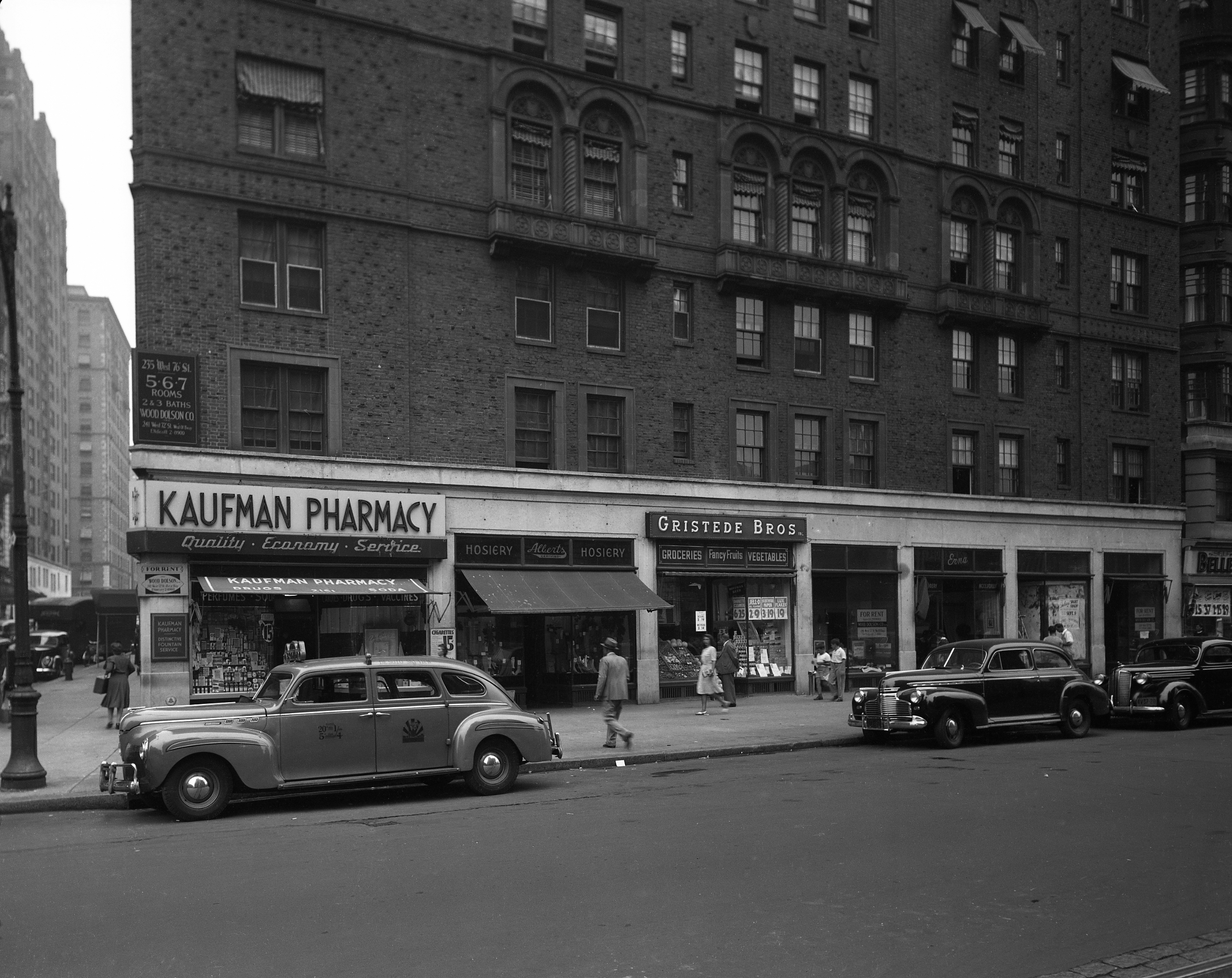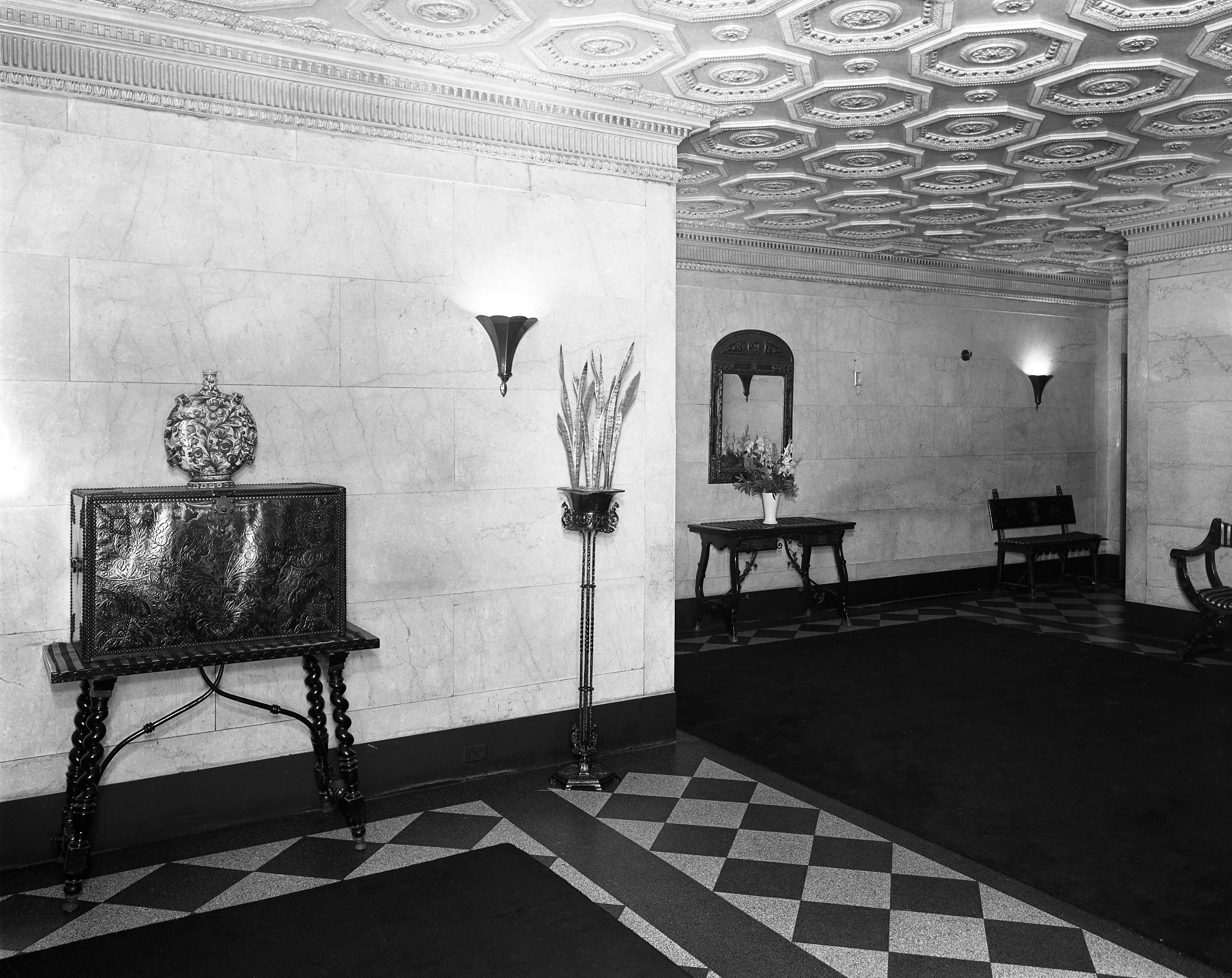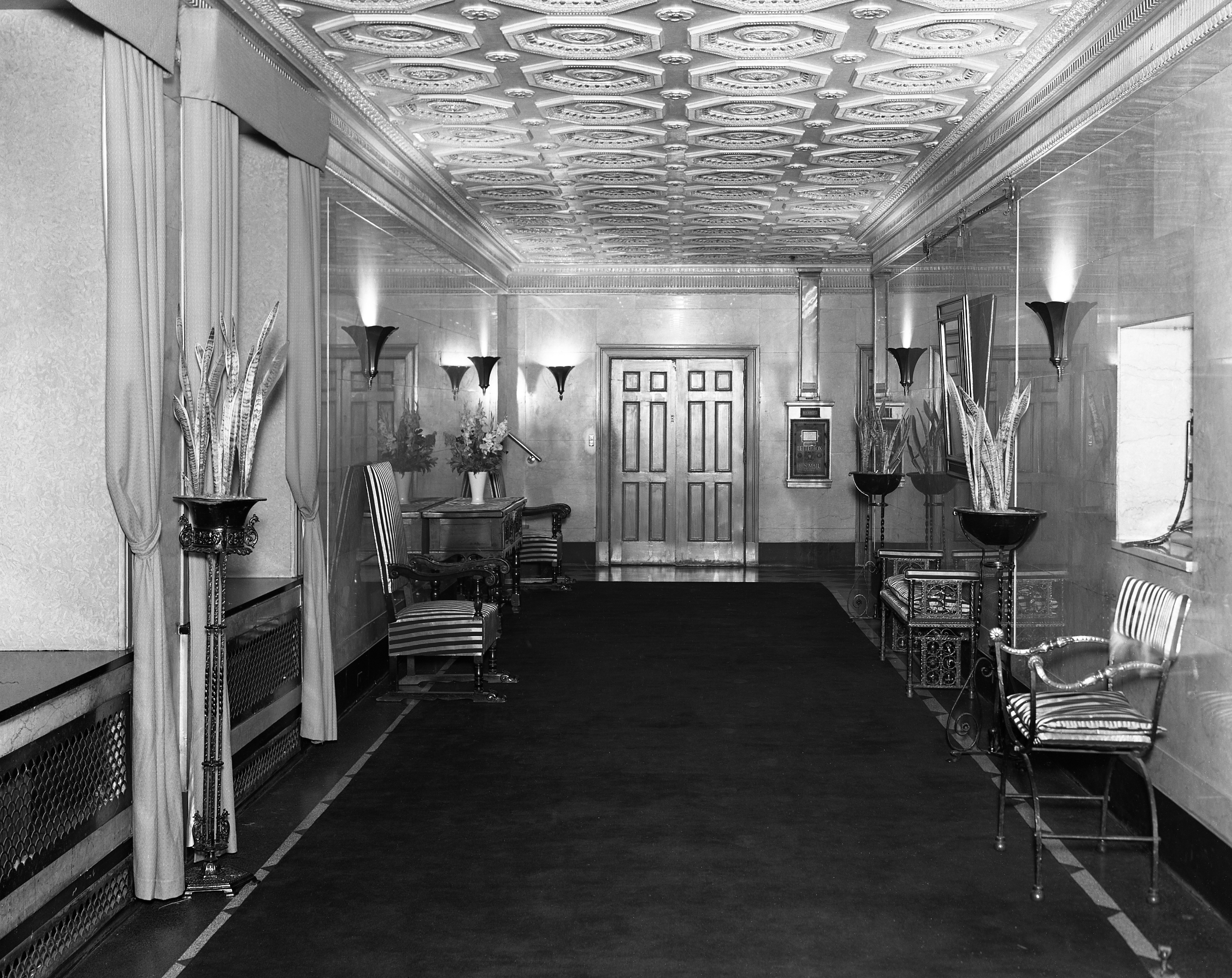
The Colorado
by Tom Miller
Born in 1873, architect Robert T. Lyons had made his mark on the Manhattan landscape by the early 1920’s. Among his many designs were the opulent 1906 St. Urban Apartments on Central Park West; 903 Park Avenue, which was the tallest apartment building in the world when it opened in 1916; and the 1925 Gramercy Park Hotel. The same year the Gramercy Park Hotel was opened, Robert Lyons’s newest building, at the northwest corner of Broadway and 76th Street, was completed.
A modern take on Italian Renaissance architecture, Lyons clad the upper floors of the 15-story building in variegated, rough-faced brick. Slightly projecting bricks were laid in a diapered diamond pattern on either side of the corner bays. Fanciful pseudo balconies of colorful terra cotta adorned the fourth and thirteenth floors. Lyons forewent a cornice in favor of a terra cotta corbel table.
An advertisement touted apartments of six or seven rooms with three bathrooms. “Rent $2900 up.” Rent for the least expensive apartment in 1926 would equal about $3,600 per month in today’s money.
Among the initial residents was Frank J. Hale, owner and publisher of the weekly magazine, Politics. He was summoned to testify before the United States Senate Special Committee Investigating Presidential Campaign Expenditures on May 23, 1928. Hale was grilled as to how he kept the periodical, which he admitted was running in the red, afloat. The Chairman said, rather flatly, “one obvious thing is that it is anti-[Herbert] Hoover in this campaign and the natural inquiry presents itself as to whether you are receiving any assistance in meeting the expenses of the publication of that paper from any person who is opposed to the candidacy of Secretary Hoover.” Hale insisted he absorbed the losses personally.
That night “a young brunette girl,” as described by the Brooklyn Daily Eagle, entered the salon with two gunmen.
There were four stores along Broadway. The Steen Beauty Parlor occupied 2165 Broadway in 1931. Lilian Steen suffered a terrifying incident on December 18 that year. That night “a young brunette girl,” as described by the Brooklyn Daily Eagle, entered the salon with two gunmen. The article said, “According to Lillian Steen, the proprietor, the girl did all the talking and gave the men instructions.” They made off with $700 and Lillian’s ruby ring. “She took the ring from Miss Steen’s finger herself,” said the newspaper.
Like Frank J. Hale, the residents were professionals. Living in the building at the time of the salon hold-up, for instance, were Luis Felipe Yglesias, the head of Yglesias & Co., an import and export firm; and retired mining engineer Ernest H. J. Amy. Amy had graduated from the Columbia School of Mines in 1885 and for several years managed the San Juan Mining and Smelting Company in Durango, Colorado.
In 1943, the store space at 2163 Broadway became the campaign headquarters for former State Senator John L. Buckley’s run for Democratic leader of the Seventh Assembly district. The New York Sun commented on July 12 that the race was “one of the few primary fights in which the Tammany forces are putting on a little extra pressure to make certain of the outcome.”
Rents for a six-room apartment that year started at $1,600 per year, and a seven-room apartment for $2,000. The least expensive apartment was now equal to just over $2,000 per month by today’s conversion.
While many of the apartment buildings along Broadway declined in the second half of the 20th century, 235 West 76th Street remained stable. Among the residents were attorney Myron Butler and his wife, the former Jessie Becker. Butler was also a director and vice president of the Butler Lumber Company.
Another well-known resident was Emanuel Balaban, an orchestra conductor and member of the Julliard School of Music faculty. Early in his career, he was the piano accompanist for famous violinists Erica Morini, Efrem Zimbalist, and Mischa Elman. He had guest conducted at the National Symphony Orchestra in Washington, the New York Philharmonic, and the Berlin Philharmonic. Balaban died of cancer while living here in April 1973.
In the meantime, the shop at 2163 Broadway was home to Louis Berkow’s jewelry store. On June 12, 1966, thieves forced the door of the tailor shop next door, entered that space, then broke through the wall. They made off with an estimated $20,000 in jewelry (closer to $167,000 today), and $800 in cash.
Pianist Daniel Epstein lived in the building in 1978. He debuted in New York in 1969 and, according to The New York Times, “The fortune cookie crumbled on his behalf in 1973 when he was chosen to play the ‘Yellow River Concerto,’ that product of the Chinese Cultural Revolution, with the Philadelphia Orchestra under Eugene Ormandy.” That evening resulted in orchestral appearances throughout the nation.
“When he returned, he checked with Tully Hall and discovered to his horror that he was still responsible for the date.”
In 1977 Epstein laid plans for a New York Recital. He booked Alice Tully Hall for April 26, 1978, and advertised in the newspapers. The costs were between $5,000 and $6,000. But then, a “drastic change in his personal life,” as worded by The New York Times, resulted in financial problems. He canceled the Alice Tully Hall date and went off on a European tour. He was in for a shocking surprise.
On April 23, 1978, The New York Times reported, “When he returned, he checked with Tully Hall and discovered to his horror that he was still responsible for the date.” To avoid additional costs, he decided to give the concert for free. The New York Times explained, “For most young artists appearing on their own, little is made on the sale of tickets anyway; the income makes hardly a dent in the concert’s expenses.”
Pasta and Dreams, an “upbeat little Italian restaurant,” as described by The New York Times, opened in 2161 Broadway in March of 1987. At 2165 Broadway was the Video Room, a video cassette store. Pasta and Dreams was replaced by Niko’s Mediterranean restaurant in 1994. It lasted until 2011 when Fratelli la Bufala took the space. In the meantime, around 2004 Beard Papa Sweets Café opened at 2167 Broadway, closing in 2022.
Although originally unnamed, at some point the building was christened The Colorado. Nearly a century after its completion, Robert T. Lyons’s handsome Italian Renaissance façade still draws admiring glances.
Tom Miller is a social historian and blogger at daytoninmanhattan.blogspot.com
Building Database
Keep Exploring
Be a part of history!
Think Local First to support the local businesses at 2161-2169 Broadway:
Meet Richard Sussman, LCSW!

